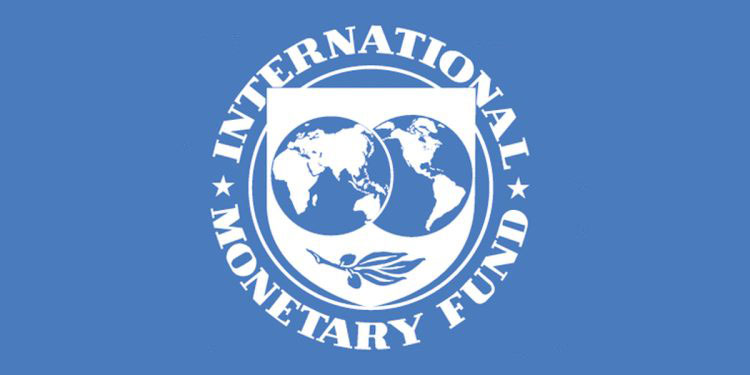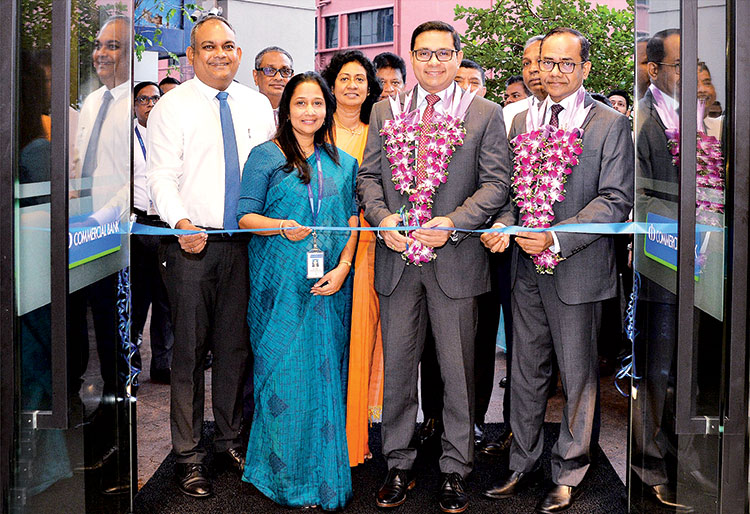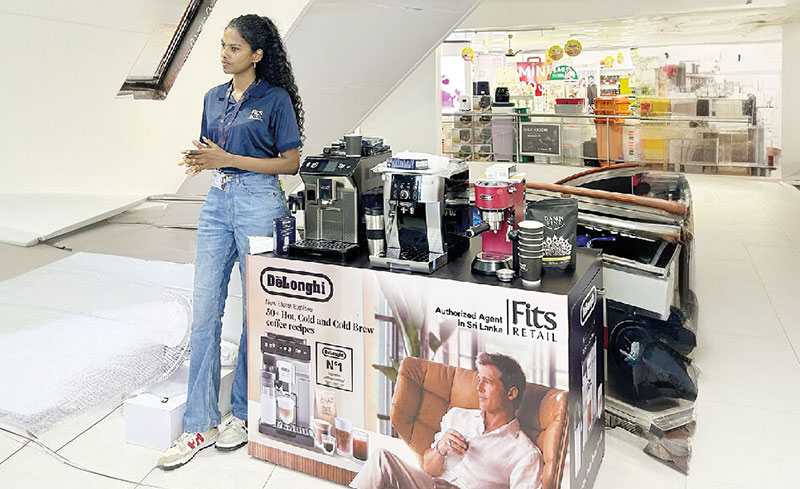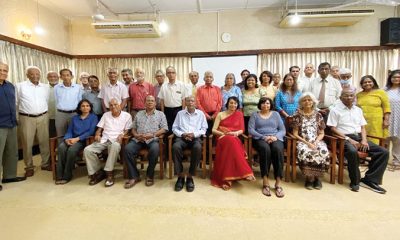Business
Decoding Oil Palm: Myths vs Truths

By Anumita Ghosh
The contents in this article revolves round a scientific research-backed study on oil palm cultivation in the aftermath of the recent ban in Sri Lanka.
Oil palm is considered to be one of the most competitive vegetable oil crops in terms of productivity. The crop provides five times as much vegetable oil per hectare compared to alternative crops, such as coconut, and sequesters more carbon per hectare than tea and coconut. According to studies conducted by Sri Lankan scientists, per litre of palm oil requires lesser fertilisers and less water than coconut, dry rubber or tea. The crop primarily uses rainwater for cultivation, and there is no evidence of palm oil plantations causing groundwater depletion. Yet, despite a wide range of virtues, the Sri Lankan government has decided to ban palm oil production, ordering replacement of oil palm trees with rubber plantations, on grounds of unfavourable environmental and social impacts.
Myths & Truths
 Unfortunately, palm oil has been at the receiving end of a perception that is nurtured based on unfavourable emotions and not facts around it. Claims of oil palm plantations leading to widespread deforestation and damage to ecosystems have hardly any transparent scientific research backing them. In Sri Lanka, oil palm does not replace forest but other plantation crops, primarily rubber or coconut. Therefore, its biodiversity performance needs to be compared with these crops, and as found in various studies, the differences in biodiversity between oil palm, rubber, tea and coconut plantations are neither significant nor conclusive.
Unfortunately, palm oil has been at the receiving end of a perception that is nurtured based on unfavourable emotions and not facts around it. Claims of oil palm plantations leading to widespread deforestation and damage to ecosystems have hardly any transparent scientific research backing them. In Sri Lanka, oil palm does not replace forest but other plantation crops, primarily rubber or coconut. Therefore, its biodiversity performance needs to be compared with these crops, and as found in various studies, the differences in biodiversity between oil palm, rubber, tea and coconut plantations are neither significant nor conclusive.
In an attempt to break the myths around palm oil and its production, Solidaridad has released the “Myths and Truths of Oil Palm”, a research-based scientific study that provides information and assessments on palm oil through an in-depth literature review on research findings by over 15 leading scientists from top universities and research institutions across Indonesia, Malaysia, India and Sri Lanka. A result of extensive research, the publication vividly portrays the social, economic and environmental impacts of oil palm production.
Research highlights
Sri Lanka annually imports 180,000 to 220,000 MT of vegetable oil. This can be met with 50,000 ha of oil palm or 271,000 ha of coconut. Oil palm yields 4 to 5 times oil per ha.
Oil palm plantations have served Sri Lanka for over 54 years, starting around 1968 Palm oil is in many aspects healthier than coconut oil Currently, profits generated per ha/ year; Oil Palm LKR900,000, Coconut LKR280,000, Rubber LKR70,000, Tea LKR45,000 The daily wages per month for workers; Oil palm worker LKR30,000 – LKR50,000, Tea estate worker LKR25,000, Rubber tapper LKR18,000
No evidence has been found of soil and water resource degradation in the oil palm growing estates in Sri Lanka
A worldwide study which included Sri Lanka has shown that in Sri Lanka, the water footprint of coconut oil 10,548 m3water/ton, palm oil 3,946 m3water/ton.
Setting the tone
The launch was organised on 19 January 2022 in a hybrid event with scientists, government ministries and departments, research institutes, private sector, community organisations, media and other participants from Sri Lanka joining the event physically. Panelists and participants from India, Indonesia, Malaysia, the Netherlands and other parts of the world attended the event virtually.
Among the panelists, Dr. Shatadru Chattopadhayay, Managing Director, Solidaridad Asia, began the session on a strong and positive note, highlighting the socio-economic impacts of the crop.
“Stop condemning palm oil while adulating other oils, especially when we know that palm oil provides livelihoods to thousands of communities,” he mentioned, setting the tone of the session.
Professor Maja Slingerland from the Wageningen University of the Netherlands, who is also the study reviewer and editor, spoke at length on the impacts and opportunities of oil palm cultivation in Asia.
Research scholar, Dr. Ranjith Mahindapala, presented the audience with the key findings and recommendations from the publication. The panelists also included Manjula De Silva, Ceylon Chamber of Commerce, Sri Lanka; Mrs. Musdahlifah Machmud, Coordinating Ministry for Economic Affairs, Indonesia; Atul Chaturvedi, Solvent Extractors Association, India; Dr. Ahmad Parveez Ghulam Kadir, Malaysian Palm Oil Board, among others.
One of the panelists, Ms. Margot Logman, Secretary General of the European Palm Oil Alliance (EPOA), delivered an argument through her presentation stating: “Only alternative to palm oil is sustainable palm oil”. She urged for an urgent call to action in support of oil palm cultivation.
“We need to tell the complicated truth about sustainable palm oil, not a simple story. We need to win the trust of consumers with facts, and not emotions, in support of palm oil in Europe,” Logman said.
Logman’s call for a perception makeover of the crop was echoed in the smallholder representative Nimal Wijesinghe’s address to the audience. The president of the Haritha Derana Smallholder Association in Sri Lanka narrated how the small farmers in the region had developed misconceptions about oil palm primarily because they did not grow it and were not aware of the truths about the crop. “On learning about the higher profit and income of oil palm cultivation over other crops, they asked me: Can’t we grow this crop?” he mentioned.
Wijesinghe’s appeal to the authorities marked the perfect denouement to the session as he urged, “Give this crop to the smallholder; give it to the person who owns half an acre of land…the person who can grow only 25 trees. That would be the real Samurdhi (prosperity; also, the name of a government welfare scheme for low-income families in Sri Lanka).”
Anumita Ghosh is a Senior Editor and communication professional at Solidaridad Asia – an international sustainability organisation, and can be reached at anumita.ghosh@solidaridadnetwork.org
Business
IMF staff team concludes visit to Sri Lanka

An International Monetary Fund (IMF) team led by Evan Papageorgiou visited Colombo from April 3 to 11, 2025. After constructive discussions in Colombo, Mr. Papageorgiou issued the following statement:
“Sri Lanka’s ambitious reform agenda supported by the IMF Extended Fund Facility (EFF) continues to deliver commendable outcomes. The post-crisis growth rebound of 5 percent in 2024 is impressive. Inflation declined considerably in recent quarters and has fallen to ‑2.6 percent at end-March 2025. Gross official reserves increased to US$6.5 billion at end-March 2025 with sizeable foreign exchange purchases by the central bank. Substantial fiscal reforms have strengthened public finances.
“The recent external shock and evolving developments are creating uncertainty for the Sri Lankan economy, which is still recovering from its own economic crisis. More time is needed to assess the impact of the global shock and how its implications for Sri Lanka can be addressed within the contours of its IMF-supported program.
“The government’s sustained commitment to program objectives is ensuring policy continuity and program implementation remains strong. Going forward, sustaining the reform momentum is critical to safeguard the hard-won gains of the program and put the economy on a path toward lasting macroeconomic stability and higher inclusive growth.
“Against increased global uncertainty, sustained revenue mobilization efforts and prudent budget execution in line with Budget 2025 are critical to preserve the limited fiscal space. Boosting tax compliance, including by reinstating an efficient and timely VAT refund mechanism, will help contribute to revenue gains without resorting to additional tax policy measures. Avoiding new tax exemptions will help reduce fiscal revenue leakages, corruption risks and build much needed fiscal buffers, including for social spending to support Sri Lanka’s most vulnerable. Restoring cost recovery in electricity pricing will help minimize fiscal risks arising from the electricity state-owned enterprise.
“The government has an important responsibility to protect the poor and vulnerable at this uncertain time. It is important to redouble efforts to improve targeting, adequacy, and coverage of social safety nets. Fiscal support needs to be well-targeted, time-bound, and within the existing budget envelope.
“While inflation remains low, continued monitoring is warranted to ensure sustained price stability and support macroeconomic stability. Against ongoing global uncertainty, it remains important to continue rebuilding external buffers through reserves accumulation.
“Discussions are ongoing, and the authorities are encouraged to continue to make progress on restoring cost-recovery electricity pricing, strengthening the tax exemptions framework, and other important structural reforms.
“The IMF team held meetings with His Excellency President and Finance Minister Anura Kumara Dissanayake, Honorable Prime Minister Dr. Harini Amarasuriya ; Honorable Labor Minister and Deputy Minister of Economic Development Prof. Anil Jayantha Fernando, Honorable Deputy Minister of Finance and Planning Dr. Harshana Suriyapperuma, Central Bank of Sri Lanka Governor Dr. P. Nandalal Weerasinghe, Secretary to the Treasury Mr. K M Mahinda Siriwardana, Senior Economic Advisor to the President Duminda Hulangamuwa, and other senior government and CBSL officials. The team also met with parliamentarians, representatives from the private sector, civil society organizations, and development partners.
“We would like to thank the authorities for the excellent collaboration during the mission. Discussions are continuing with the goal of reaching staff-level agreement in the near term to pave the way for the timely completion of the fourth review. We reaffirm our commitment to support Sri Lanka at this uncertain time.”
Business
ComBank unveils new Corporate Branch at Head Office

The Commercial Bank of Ceylon has transformed its iconic ‘Foreign Branch’ into the ‘Corporate Branch,’ reaffirming its commitment to delivering dedicated, comprehensive financial solutions to corporate and trade customers.
The Bank said this transformation represents a new milestone in its illustrious journey, and resonates with the rich commercial heritage of Colombo, a city that has long served as a vital trading hub in the region.
Strategically located at the Bank’s Head Office at Commercial House, 21, Sir Razeek Fareed Mawatha (Bristol Street), Colombo 1, this rebranded Corporate Branch stands as a first of its kind in Sri Lanka —a premier financial hub tailored exclusively to the needs of corporate customers, the Bank said. The transformation aligns with the Bank’s vision of providing unparalleled service excellence, bespoke financial solutions, and fostering long-term business partnerships.
Commenting on this strategic initiative, Commercial Bank’s Managing Director/CEO Sanath Manatunge stated: “It is our aspiration that just as the historic Delft Gateway, at which our Head Office is located, once opened the path to the Dutch Fort, our Corporate Branch will chart a new era of enduring and prosperous business collaborations, that will extend beyond Sri Lanka’s shores.”
Business
Fits Retail and Abans PLC Unveil Exclusive DeLonghi Premium Coffee Experience

Fits Retail has partnered with retail giant Abans PLC to showcase the iconic DeLonghi coffee machines at two of Colombo’s most prestigious locations: Abans Elite Colombo 3 and Abans Havelock City Mall showrooms.
At these dedicated demonstration zones, visitors can discover the unparalleled precision engineering and user-friendly technology that have made DeLonghi machines the preferred choice for discerning coffee lovers in more than 46 countries worldwide. Renowned for consistently delivering café-quality espresso, cappuccino, and even specialty cold brews, DeLonghi machines exemplify Italian innovation at its finest.
Yasas Kodituwakku, CEO of Fits Retail, expressed excitement about the collaboration: “This partnership represents our unwavering commitment to bringing global coffee excellence to Sri Lankan connoisseurs. With Abans PLC, we’re creating more than just demonstration spaces; we’re curating premium destinations for an authentic coffee experience.”
“As pioneers of premium lifestyle experiences in Sri Lanka, our collaboration with Fits Retail aligns seamlessly with our vision of elevating everyday moments into exceptional experiences,” said Tanaz Pestonjee, Director Business Development at Abans PLC.
-

 News4 days ago
News4 days agoSuspect injured in police shooting hospitalised
-

 Features5 days ago
Features5 days agoRobbers and Wreckers
-

 Business4 days ago
Business4 days agoSanjiv Hulugalle appointed CEO and General Manager of Cinnamon Life at City of Dreams Sri Lanka
-

 Business5 days ago
Business5 days agoBhathiya Bulumulla – The Man I Knew
-

 Business6 days ago
Business6 days agoNational Anti-Corruption Action Plan launched with focus on economic recovery
-

 Features3 days ago
Features3 days agoLiberation Day tariffs chaos could cause permanent damage to US economy, amid global tensions
-

 Features3 days ago
Features3 days agoMinds and Memories picturing 65 years of Sri Lankan Politics and Society
-

 Opinion6 days ago
Opinion6 days agoSome aspects of China’s development model











